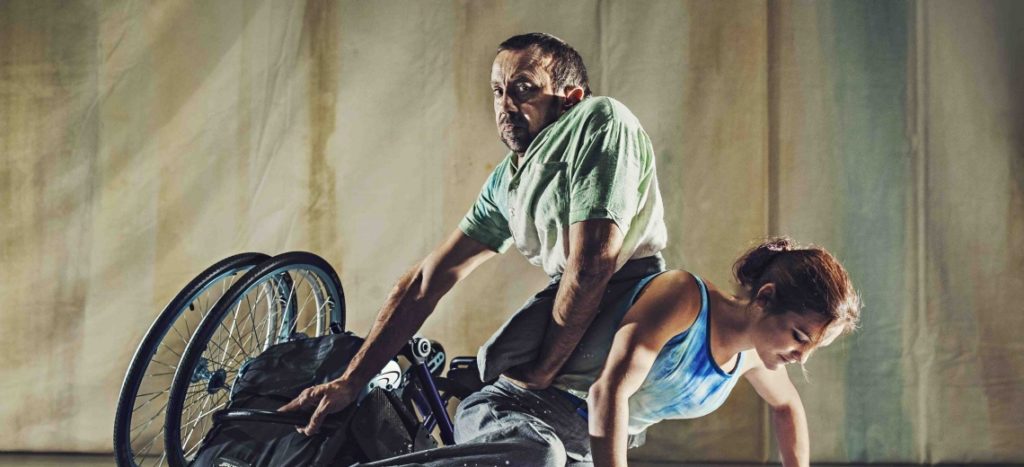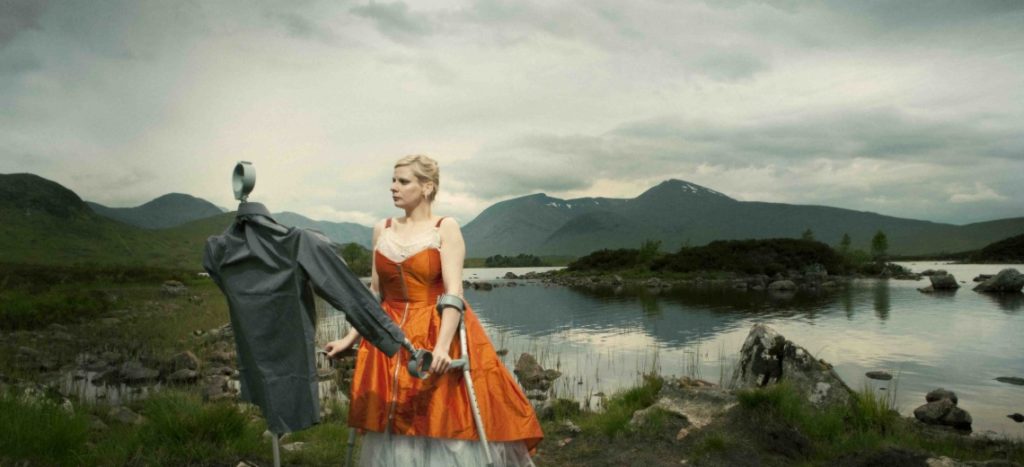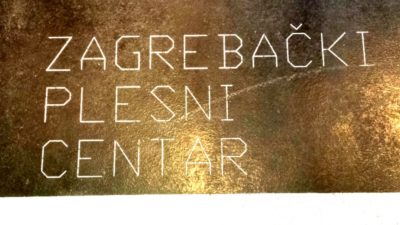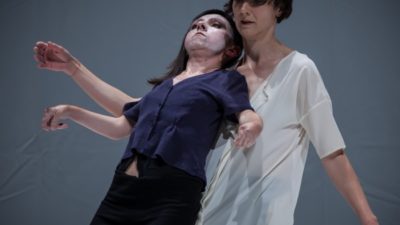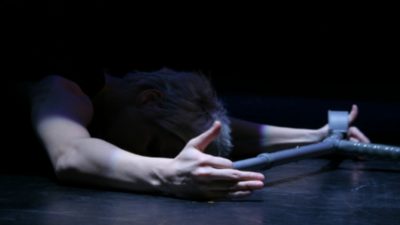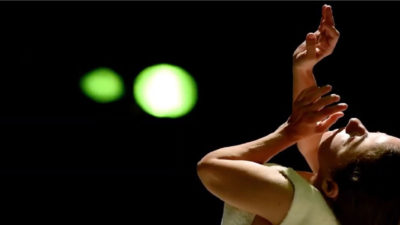August 19, 2015
Unlimited Access was a European-wide programme designed to support best practice in the commissioning, creation, dissemination and programming of performing arts by Deaf and disabled artists. It was a two-year programme starting in 2013, delivered by four partners: the British Council (UK), the Onassis Cultural Centre (Greece), Associação Vo’Arte (Portugal) and the Croatian Institute for Movement and Dance (Croatia) and co-funded by the Culture Programme of the European Commission. Unlimited Access was in many ways the precursor to Europe Beyond Access, a pan-European collaboration between 7 leading arts organisations, co-funded by the Creative Europe programme of the European Commission.
Unlimited Access brought together a range of disabled artists, producers and venue managers and has seen the beginnings of extended engagement across the EU for a part of the cultural sector that has for too long been ignored.”
– Steve Mannix, External Evaluator
Project overview
The social model of disability and the creative case for diversity were at the heart of the project, with the over-arching objective to combine these principles into actions which:
- enable a deeper understanding of the aesthetic of dance created by disabled artists amongst their peers and its influence on the mainstream
- increase awareness of the needs of disabled artists and audiences to access mainstream provision in venues, festivals and events across each participating member state and in the EU as a whole.
Year One
The first year of activities focused on creating opportunities to learn about different inclusive approaches and to exchange learning and build creative skills. Each partner delivered activity in their country – a Study Visit in Glasgow (UK) for partners and EU arts professionals, and in Portugal, Croatia and Greece, a series of ‘Creative Encounters – dance workshops, talks and presentations of work designed to encourage disabled artists and audiences into cultural spaces.
Year Two
The second and final year focused on showcasing work by disabled artists, with each partner taking responsibility for presenting work on a ‘mainstream’ stage.
- British Council Showcase at the Edinburgh Fringe – 23 companies representing the best of young British talent in theatre and dance, including Claire Cunninghamand Gail Sneddon’s Ménage à Trois
- Zagreb Dance Week Festival presenting 43 dance and dance theatre performances across 4 venues including Candoco Dance Company at the National Youth Theatre and IMRC at the Zagreb Dance Centre
- Vo’Arte’s InShadow Festival featuring 7 performances, 7 installations and 3 exhibitions, including Chisato Minamimura’s Ring the Changes+ , Sue Austin‘s Finding Freedom and Rins a piece choreographed by Mickaella Dantas, a dancer with CiM company
- International Dance Festival “Unlimited Access” curated and presented at the Onassis Cultural Centre, featuring 8 performances by disabled artists and disabled-led companies from 5 countries, including Claire Cunningham, Candoco Dance Company, CiM, IMRC, Ver Te Dance, and three integrated groups of disabled and non-disabled performers presenting work developed during the Greece Creative Encounters
Project partners
British Council (UK)
The British Council is the UK’s international organisation for cultural relations and educational opportunities. The British Council is on the ground in over 100 countries, connecting millions of people with the United Kingdom through programmes and services in the English language, the Arts, Education and Society. The British Council has worked around the world to promote the best of British arts created by Deaf and disabled artists, supporting the showcasing of UK work as well as the establishment of long-lasting and mutually beneficial relationships with artists and organisations overseas. The profile given to the work of the UK’s Deaf and disabled arts sector during the London 2012 Cultural Olympiad served to gather momentum around an already flourishing sector. For the British Council this momentum has helped focus their work in support of Deaf & disabled artists in the UK and overseas.
Vo’Arte (Portugal)
VoArte was established in 1998 with a desire to produce, promote and enhance contemporary creativity, through the intersection of artistic languages and development of national and international projects. With 17 years’ experience of artistic, educational and social activities in the areas of creation, programming, training and inclusion, Vo’Arte believes in artistic culture and continues to promote established and emerging artists with and without disability, to present new performances, exhibitions, films, seminars and trans-disciplinary programs.
Croatian Institute for Movement and Dance (Croatia)
The Croatian Institute for Movement and Dance (HIPP) is a non-profit organization instrumental in pioneering and enhancing infrastructural support for independent contemporary dance in Croatia. Dance Week Festival, founded by Artistic Director/ Producer Mirna Zagar is HIPP’s longest standing project. This annual international festival of contemporary dance has since its inception in 1982, presented well over 500 internationally acclaimed artists and companies and has positioned contemporary dance firmly on the Croatian cultural scene. A small integrated dance collective, IMRC, is in residence at the Zagreb Dance Centre.
Onassis Cultural Centre (Greece)
The Onassis Cultural Centre is a cultural space in Athens hosting events and activities across the whole spectrum of the arts from theatre, dance, music and the visual arts to the written word. Through their programme, the OCC has an emphasis on contemporary cultural expression, on supporting Greek artists, on cultivating international collaborations and on educating children and people of all ages through life-long learning.
Evaluation
For further details about the project activities, the achievements of Unlimited Access and some of the challenges, take a look at the full External Evaluation Report, available to download as a PDF file.
Sector impact
Throughout Unlimited Access, representatives from a range of mainstream arts bodies, established disability arts organisations and funding organisations were able to engage with the project. At two key moments in particular – the Study Visit in Glasgow, and the International Dance Festival in Athens – Unlimited Access welcomed artists and arts professionals from other EU countries and engaged them in debate and reflection about the aims of the project, the potential impact on their own organisation, their country and the sector as a whole.
“Meeting all of you in Athens has given us important food for thought. Within the Holland Dance organisation we are at a point where we are gathering as much information as we can in order to sharpen our vision and get a clearer view on what our role can be to put the subject of dance and disability on the radar in the Netherlands.”
Dance Festival Director, Holland
“I came home realising what a void there is in major international training institutions to support deaf and disabled artists and integrated practice. I gained a deeper contemplation for the complexity of the term ‘disability’ and confirmation as to how diversity enriches artistic practice.”
Dance Professional, Sweden
“We exist to make work that is relevant to the public, to the city we’re in and beyond. Our role in society as a contemporary arts centre is to help build a balanced society, create innovative forms of thinking and working. Unlimited Access fits with this.”
Venue Manager, Greece
Impact on the Project Partners
Within the partner organisations, longer-term learning and transformation has already occurred, with results including
- staff training in access issues and commissioning of access audits for the first time
- new partnerships with disabled artists with a view to long term further collaboration
- increased awareness amongst mainstream dance and cultural communities of the work of disabled artists
- high demand from disabled artists to continue workshops and programming opportunities
- increased audiences of disabled people


